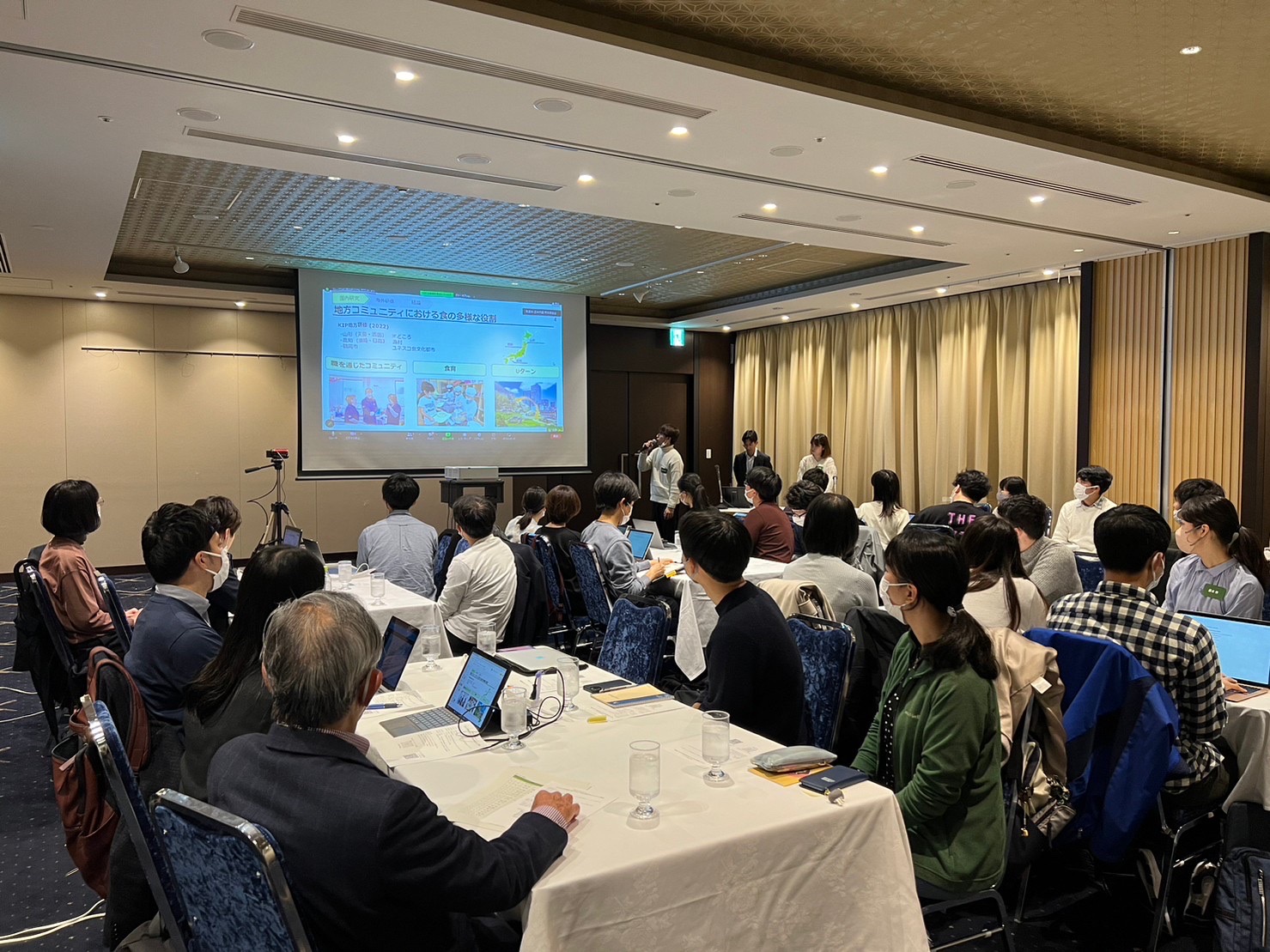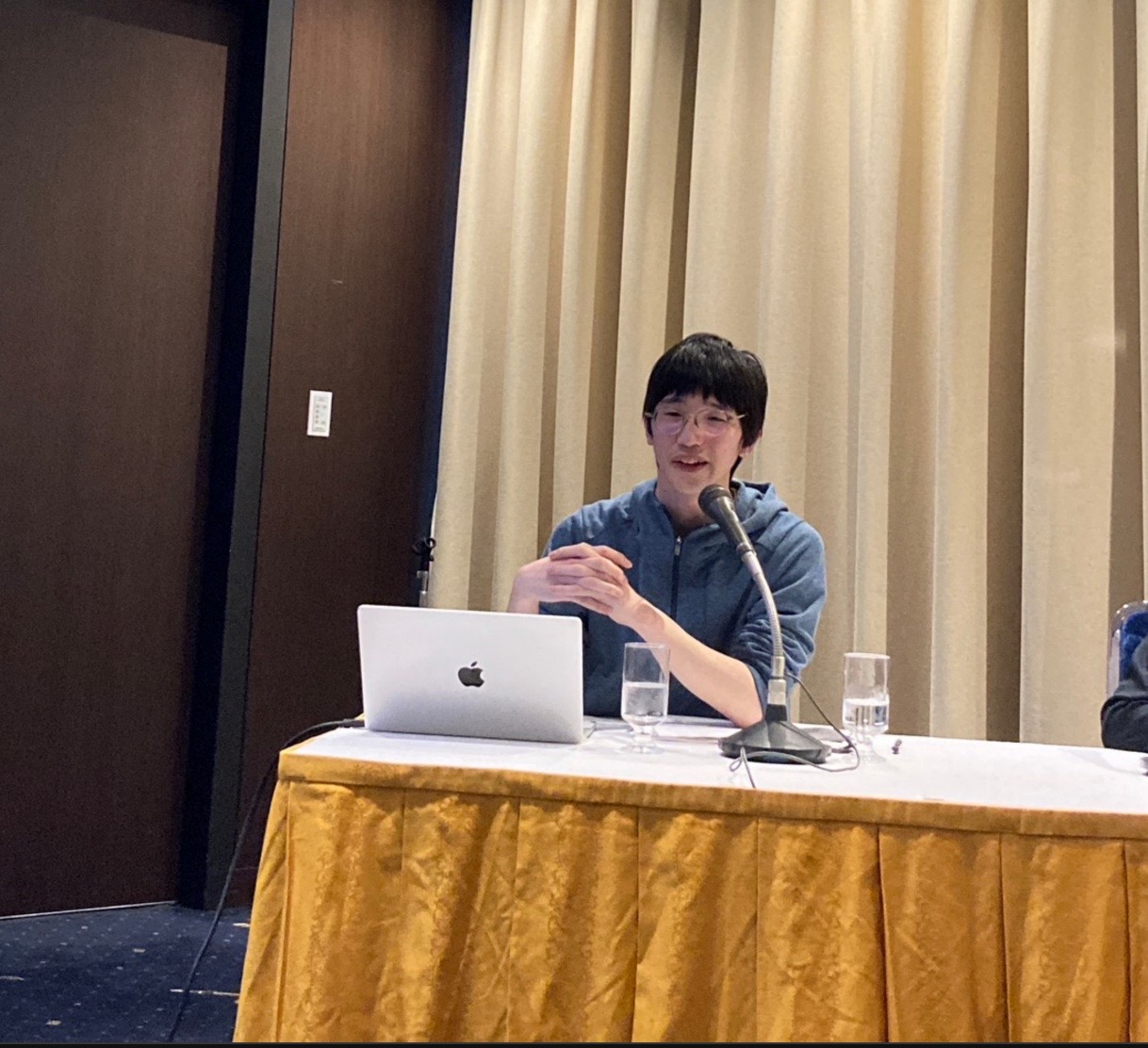- HOME
- Activities
- Forum List
- Forum Details
March.18.2023 KIP March Event "The Challenge of Biotechnology and Genome Editing in the Medical Field"

Mr. Ken Yasaka, Doctor at Tohoku University, KIP alumnus
【Introduction for the Lineup of Forums in KIP】
The 14th KIP Symposium was membership-oriented. In the first part, 2022 KIP project members presented their research, which included the results of the project, regional studies, and an overseas study. In the second part, Mr. Ken Yasaka, a doctor at Tohoku University, delivered a lecture on genome editing, followed by a discussion on "Should genome editing technology be developed and used widely, or is there a line that humans should not cross? "
【Presentation by the Members of Project】
In the first part, 2022 project members gave a research presentation, whose title was
"Sustainable Communities from the Perspective of Food,"
According to two questionnaires
conducted by KIP, they explained that although food plays significant roles in community
building, many young Japanese are unaware of the importance of food and that in Southeast
Asia, as in Japan, it is food that counts for making relationships. The questionnaires, regional
studies, and Southeast Asia studies implied that low cost, time-sharing, and openness are three
crucial factors for establishing a community, and that food is the one that satisfies all of these
factors. Hence, in the action phase, a reception was held after the symposium to build
community through food.
【Speech and Q&A】
In the second part, Mr. Ken Yasaka, a doctor at Tohoku University, delivered a lecture on
genome editing, followed by a discussion on "Should genome editing technology be developed
and used widely, or is there a line that humans should not cross? "
In the 21st century, owing to next-generation sequencers, the technology to read genomes has
advanced dramatically, making it easier to determine genetic mutations. Most diseases are
multifactorial diseases caused by multiple genetic and environmental factors. On the other
hand, there are also single gene disorders caused by one particular gene mutation. CRISPR
Cas9 has facilitated genome editing, but there are technical bottlenecks. Editing the genome of
human embryos could potentially eradicate such single-gene disorders. On the contrary, now
that, the application of genome editing technology to human embryonic cells is controversial
because it may also allow for the arbitrary execution of enhancement as well as the prediction
of diseases that individuals might suffer from in the future.
In the Q&A session, we learned that genome editing of embryonic cells is more controversial
than that of somatic cells in terms of genetic inheritance, that there are no regulations forgenome editing of human embryos in Japan at present, and that genome editing can be done at
a low cost.

【Group discussion and Ground discussion】
In the group discussion, each group selected a topic from the following three themes: "How should we manage the regulation of genetic editing of human embryos? " "Will genetic editing of human embryos in the medical field deny the dignity of people with disabilities and genetic disorders?" "What concerns do you have if genetic editing of human embryos as a medical treatment is allowed in the future?" Many groups agreed that genome editing technology needs regulations. While the application of genome editing technology in human embryos to single- gene disorders is acceptable, its use for enhancement should be limited. In the ground discussion, the responsibility for genome editing, especially the issue of parent-child responsibility was discussed.
【Personal Opinion】
Through the lectures and discussions, I had an opportunity to think that, as medical technology advances, it has become possible to treat diseases that were previously difficult to cure. However, various ethical issues may arise at the same time. As a matter of fact, the ethical problems go well beyond the genetic editing of human embryos. For instance, it is still fresh in our memory that the ethical issues related to human embryonic stem (ES) cell research were raised in terms of destroying human embryos. In my opinion, for further medical development, we should correctly fear and use advanced technologies, while keeping ethical concerns in mind.
Mai Ogawa, Tokyo Women’s Medical University, Medicine, 4th year


